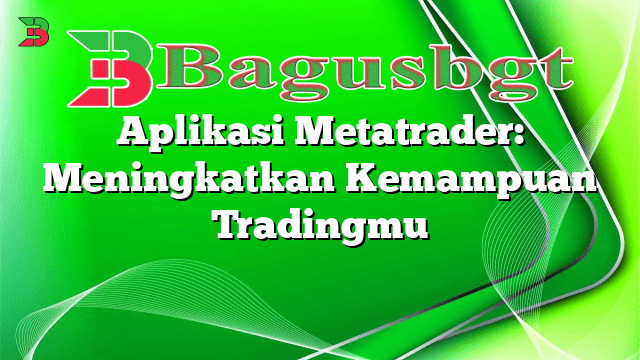Hello! In this article, we will explore the world of forex trading and shed light on what it entails. Forex, short for foreign exchange, is the process of buying and selling currencies in the global marketplace. It is the largest and most liquid financial market in the world, with trillions of dollars being traded daily. Trading forex offers individuals and institutions the opportunity to profit from fluctuations in currency exchange rates. Let’s delve into the details of this exciting and dynamic market.
1. Understanding Forex Trading
Forex trading involves speculating on the price movements of various currency pairs. Traders aim to profit by buying a currency at a lower price and selling it at a higher price. The main currency pairs traded in the forex market include EUR/USD, USD/JPY, GBP/USD, and USD/CHF. Trading can be done 24 hours a day, five days a week, as the market operates globally across different time zones.
2. How Does Forex Trading Work?
Forex trading is conducted over-the-counter (OTC), meaning that it does not take place on a centralized exchange. Instead, participants trade directly with each other through electronic communication networks (ECNs) or interbank platforms. These platforms connect buyers and sellers and facilitate the execution of trades. The forex market is influenced by various factors such as economic indicators, political events, and market sentiment, which impact currency prices.
3. Advantages of Forex Trading
Forex trading offers several advantages that make it an attractive option for individuals and institutions alike. Firstly, it provides high liquidity, ensuring that traders can enter and exit positions at any time without significant price slippage. Additionally, the forex market offers a wide range of trading opportunities, as there are numerous currency pairs to choose from. Furthermore, the availability of leverage allows traders to amplify their potential profits. However, it is essential to note that leverage can also magnify losses, making risk management crucial in forex trading.
4. Risks of Forex Trading
While forex trading presents exciting prospects, it also carries certain risks. The forex market is highly volatile, which means that prices can fluctuate rapidly and unpredictably. This volatility can lead to substantial gains, but it can also result in significant losses. Traders must be prepared to handle these risks and employ risk management strategies such as setting stop-loss orders and using proper position sizing. Additionally, the presence of scams and unregulated brokers in the forex industry highlights the importance of conducting thorough research and choosing reputable brokers.
5. Getting Started in Forex Trading
To begin trading forex, individuals need to open an account with a forex broker. It is crucial to select a broker that is regulated by a reputable financial authority to ensure the safety of funds. Once an account is opened, traders can start trading by depositing funds into their trading account. They can then use trading platforms provided by the broker to analyze the market, place trades, and monitor their positions. It is recommended for beginners to start with a demo account to practice trading strategies before risking real money.
6. Alternative Approaches to Forex Trading
There are different approaches to forex trading that cater to the preferences and goals of traders. One alternative is automated trading, where traders use computer programs or expert advisors to execute trades based on predefined rules. Another approach is social trading, which allows individuals to copy the trades of successful traders. This method is suitable for those who want to benefit from the expertise of experienced traders while learning about the market.
7. Frequently Asked Questions (FAQ)
| Question | Answer |
|---|---|
| 1. Is forex trading risky? | Yes, forex trading carries risks due to the volatile nature of the market. However, with proper risk management strategies, these risks can be mitigated. |
| 2. How much money do I need to start trading forex? | The amount of money required to start trading forex varies depending on the broker and account type. Some brokers offer accounts with low minimum deposit requirements. |
| 3. Can I trade forex part-time? | Yes, forex trading can be done on a part-time basis as the market is open 24 hours a day. However, it is essential to dedicate sufficient time for analysis and trading. |
| 4. What is leverage in forex trading? | Leverage allows traders to control larger positions with a smaller amount of capital. However, it also increases the potential for both profits and losses. |
| 5. How can I improve my forex trading skills? | To improve forex trading skills, individuals can engage in continuous learning, practice on demo accounts, analyze market trends, and seek guidance from experienced traders or educational resources. |
Conclusion
In conclusion, forex trading is the process of buying and selling currencies in the global marketplace. It offers individuals and institutions the opportunity to profit from fluctuations in currency exchange rates. While forex trading presents numerous advantages, such as high liquidity and a wide range of trading opportunities, it also carries risks due to market volatility. It is essential for traders to acquire knowledge, develop effective strategies, and implement proper risk management techniques to succeed in this dynamic market.
 Bagus Banget Kumpulan Informasi terbaru dari berbagai sumber yang terpercaya
Bagus Banget Kumpulan Informasi terbaru dari berbagai sumber yang terpercaya


